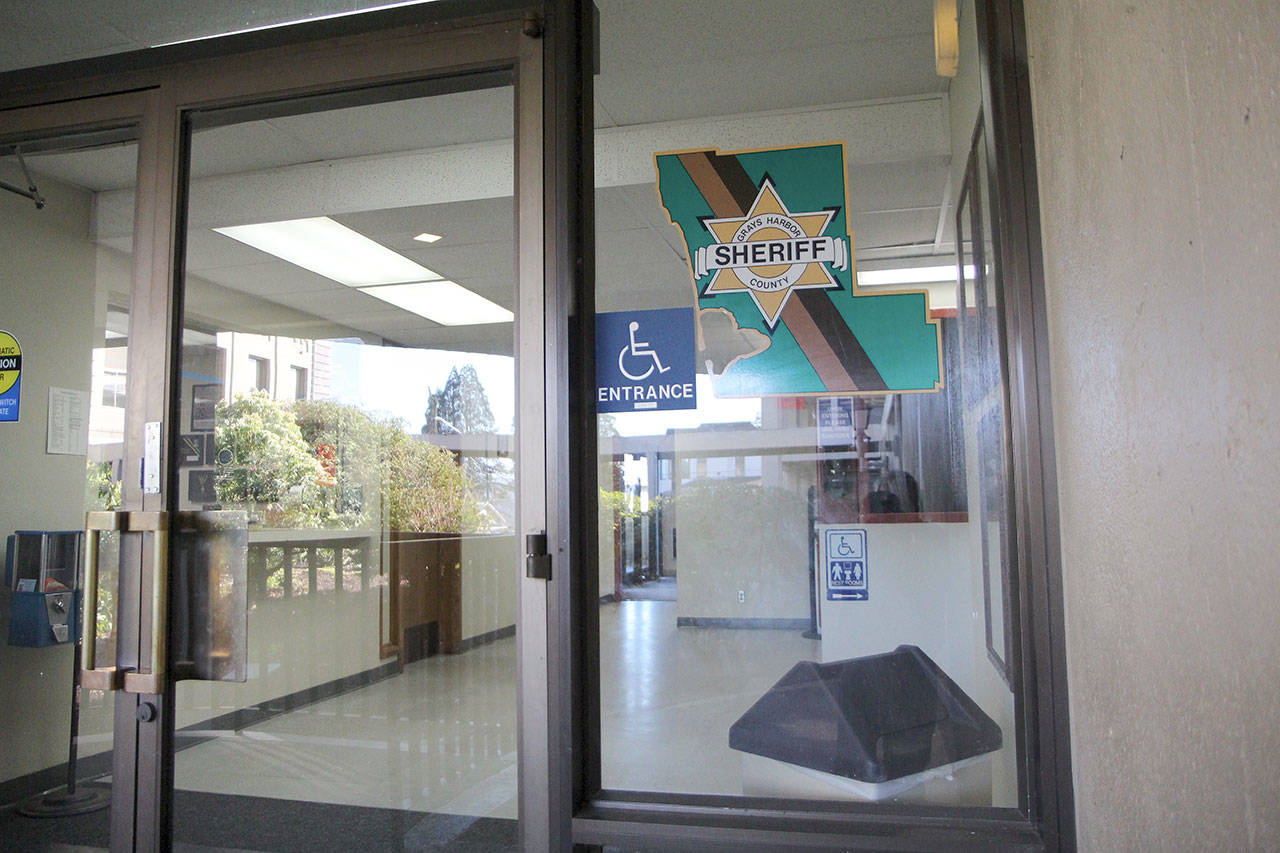By Michael Lang
Grays Harbor News Group
Across the state, some low level accused criminals are not being locked up because jails are attempting to reduce their populations in preparation for coronavirus outbreaks.
Restrictions that Grays Harbor Sheriff Rick Scott put into place March 4 around the types of crimes for which people could be booked into the jail have reduced the number of inmates to about 130, according to the jail roster, a reduction of almost 25 percent.
“We had an in-house population as high as 173 just here in the last couple weeks,” Scott said Tuesday.
Even people who commit certain drug and property crimes are being denied space in jail and returned to the streets. However, people who commit violent crimes, domestic violence and driving under the influence still will be jailed.
According to the Washington Association of Sheriffs and Police Chiefs, jails across the state are “reducing the flow” of inmates into facilities.
“There’s been a number of jails that have started to put in restrictions, especially around misdemeanors and misdemeanor warrants, to reduce the flow into the booking areas,” said John McGrath, jail services liaison for WASPC. “The majority of the jails have added additional screening questions so that they can add medical questions about people reporting to jail.”
McGrath mentioned that jails in Garfield and Kitsap counties had begun restricting bookings at their jails.
Undersheriff Dan Sereau of the Garfield County Sheriff’s Office said that their booking practices have changed.
“We’re on the same lines as everybody else, same practices,” Sereau said, similar to Grays Harbor “and the same as other county jails around the state of Washington, the ones that have made the change.”
In Grays Harbor, the Aberdeen and Hoquiam jails also are restricting bookings, Scott said.
But he said exceptions can be made.
“Those restrictions are not etched in stone. If (other Grays Harbor jurisdictions) have a need to deviate from the restrictions because of some case-specific issue, all they have to do is get ahold of one of my supervisors or one of my command staff and we will make every effort to accommodate whatever the request is,” Scott said
Grays Harbor also has begun health screening potential inmates in the jail’s sally port, a sort of garage where inmates are transported in a controlled area from law enforcement into jail custody. If an inmate is suspected of being sick, they would be sent to a hospital for evaluation, Scott said.
“My big fear is that I suddenly have an inmate population that becomes ill and I have a staff population that becomes ill and I have to figure out a way to keep the jail open and functioning with reduced staff,” Scott said. “And the only way that I would be able to do that is to reduce the population of the inmates as well.”
Dr. Marc Stern, affiliate assistant professor of health services at the University of Washington, recently talked with jail commanders across the state to advise them on how to protect their staff and inmate populations from coronavirus transmission. He put together a list of suggestions, developed by a group of health experts, to take steps like updating disaster plans; finding alternative supply chains, including for food; screening staff and inmates; and considering cutting visitations that include contact with family members.
“(People) forget about the fact that jails are integral to the public health outside the jail, because people are coming and going through the jail so rapidly,” Stern said. “These are people who are the sickest members of our community. We have an opportunity to help them get healthier.”
Stern and the experts suggested that jails consider downsizing their jail populations.
“Talk with prosecutors and judges ahead of time to develop a plan if you need to downsize,” the group suggests.
“A. Are those people you can release on their own recognizance? Do you have a priority list (who do you release if you need to downsize by 5%? 10% etc.)?
“B. Are there alternatives to arrest for certain crimes, or, in dire situations, are there crimes for which your patrol division will not arrest?”
A spokesperson for the governor’s office said that the suggestions in changes to bookings are not directives from Gov. Jay Inslee.
Scott seems to have taken the suggestions to heart despite that there have been no confirmed cases of coronavirus in Grays Harbor.
“We’re trying to be as safe both for our staff and the community,” he said. “We, like everyone else, are watching the news and seeing what the latest update is. Like everyone else, we have a lot of questions.”
Michael Lang is editor of The Vidette. He can be reached at 360-537-3936 or mlang@soundpublishing.com.



